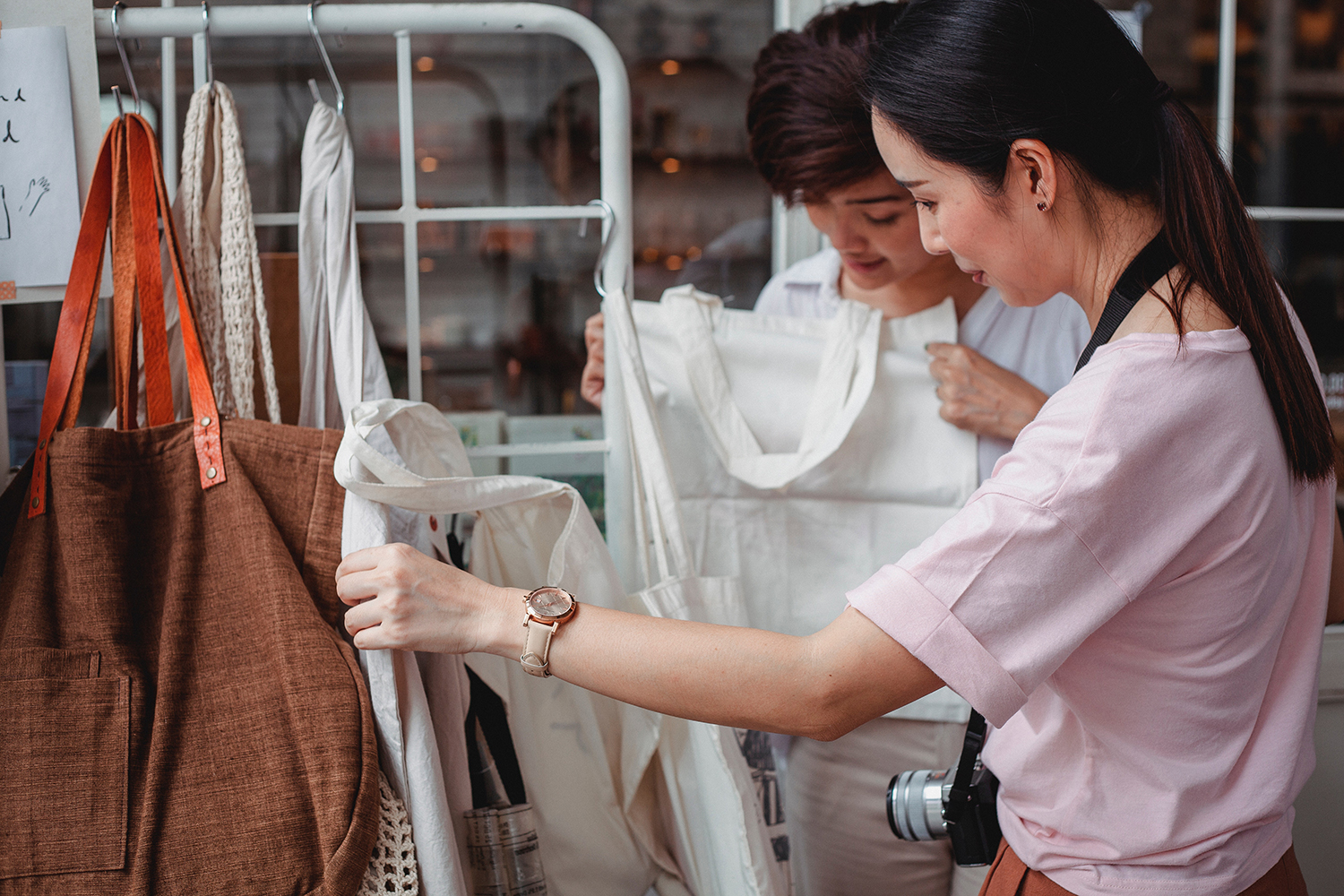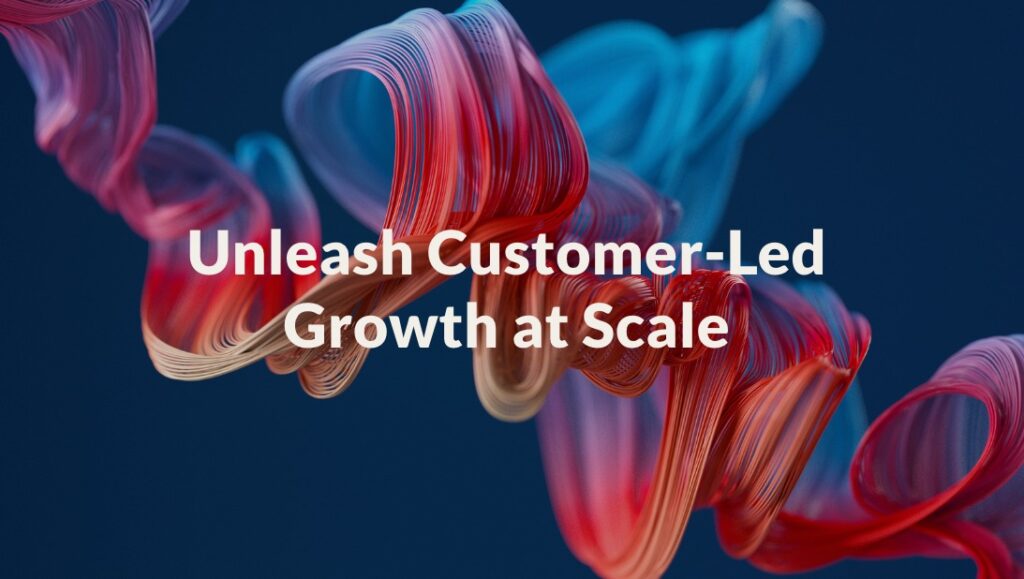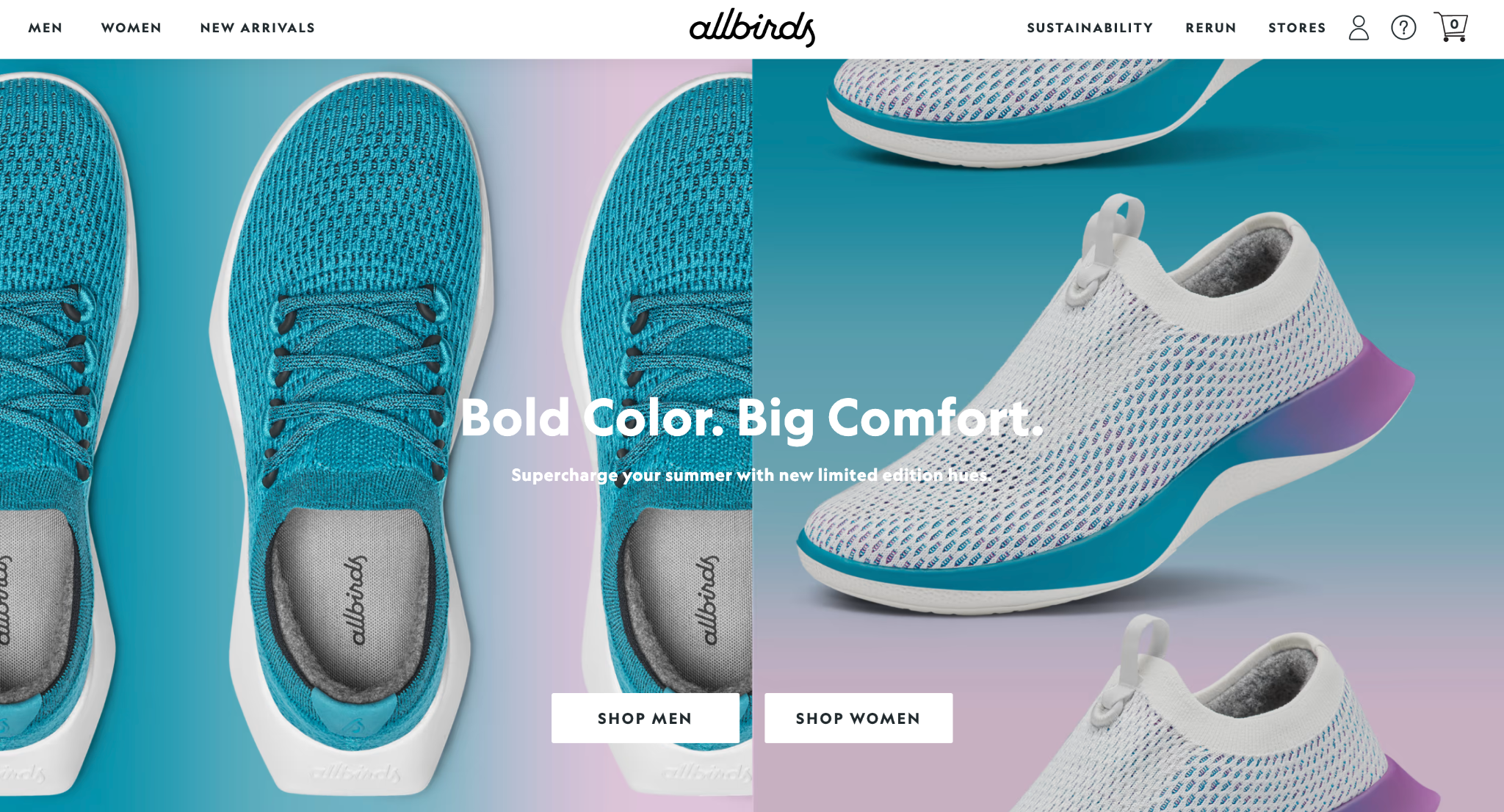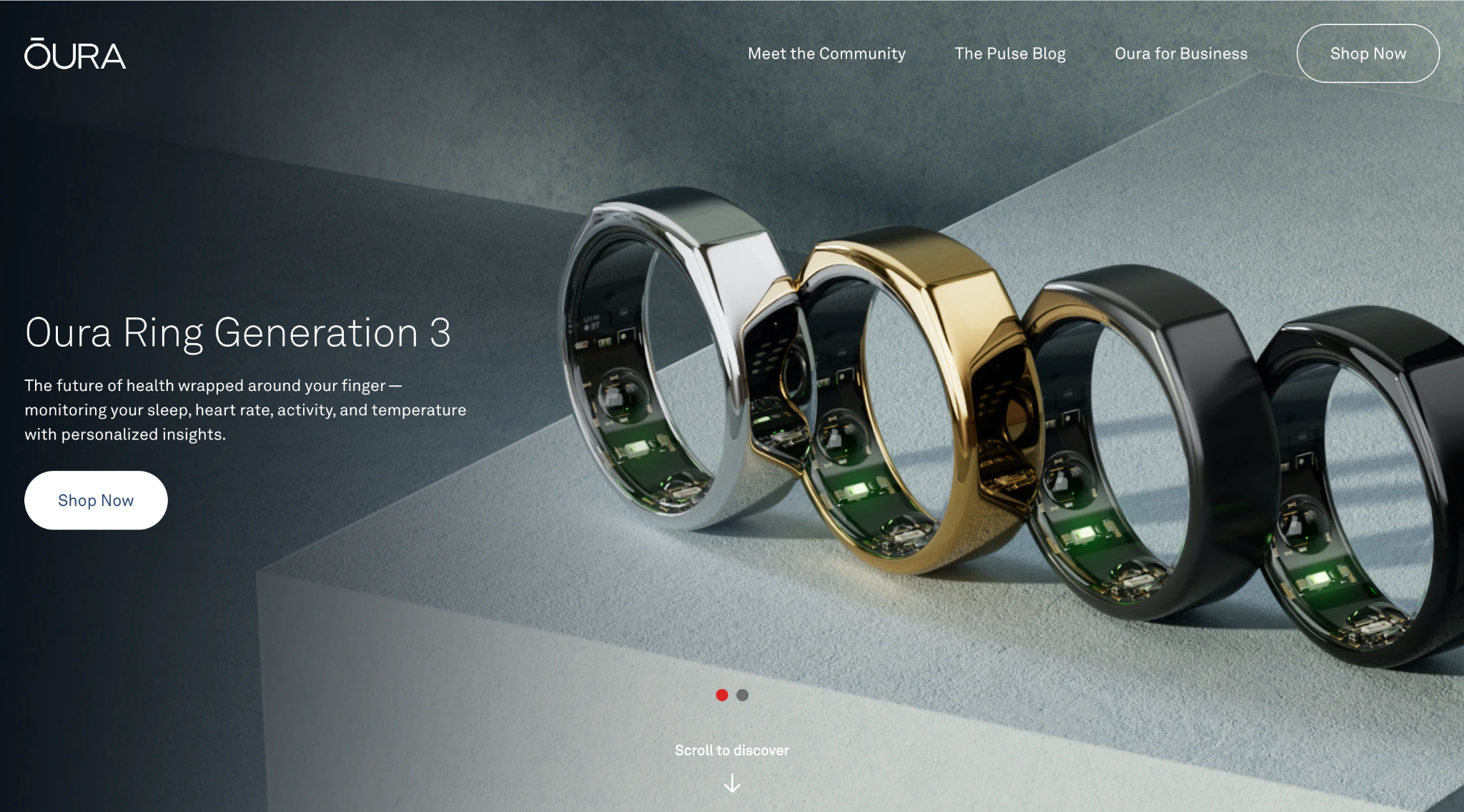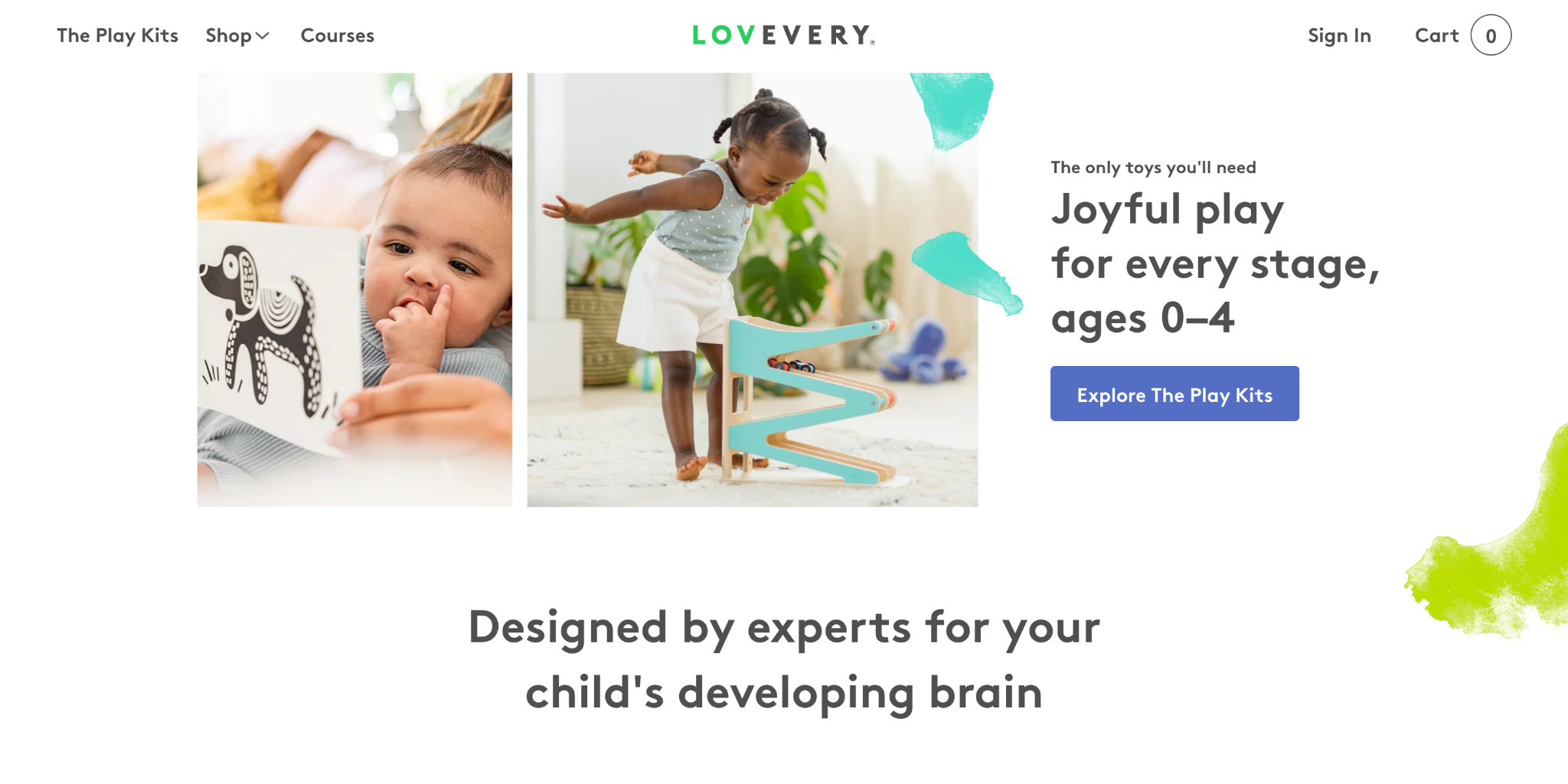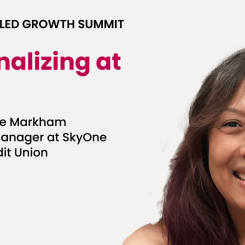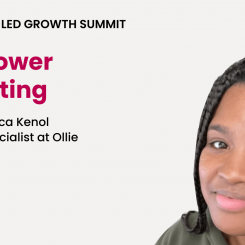Despite the highest levels of inflation in over forty years, consumers in the U.S. continue to spend at a steady rate.
But it’s not cars, homes, appliances, or large purchases they’re after — it’s direct-to-consumer retail. Smaller transactions — from tech gadgets to new clothes — made up most of the spending in the first quarter of 2022, according to MasterCard’s most recent SpendingPulse report.
The pain points from the past three years — supply chain shortages, price increases, and a struggling economy — still hold true, but there are five successful DTC companies today that stand out. Not only did these companies adapt their marketing efforts to a changing economy, but they also invested heavily in their audiences, fostering trust and community to fuel massive growth.
Elvie markets products to serve people postpartum
Elvie is a health tech brand promising to take tech “out of the dark ages” with breast pumps and pelvic floor trainers to support women postpartum.
Source: Elvie.com
The products are app-based and connected to Bluetooth, so users can control them using their smartphones.
What sets them apart?
Elvie has seen tremendous growth since its founding in 2013, having closed its Series C funding round with $94.2 million in 2021.
This is a big shift from its humble beginnings. Elvie started with just one product: a pelvic floor trainer. This was polarizing for investors — who were largely male and separated from the problem this product solved.
“We were talking about tech to put inside the vagina. It’s a very binary issue,” says Tania Boler, founder. “So a lot of investors just wouldn’t even take the meeting. They were completely uninterested.”
But they knew there was a demand among their target audience: women who have recently given birth. This underserved demographic was eager to use products built by women for women. Their commitment to their customer base paid off, and last year, Elvie won TIME’s Best Inventions of 2021 award.
Even more, women-based digital-health startup companies have seen an increase in funding by 105%, up to $418 million.
Elvie focuses on women-centered campaigns to promote products. Their SmartBodies campaign launched for International Women’s Day in 2022. The goal was to promote body positivity and sell products by partnering with pop singer Eva Lazarus.
Source: Youtube.com/Elvie
The company is also a shining example to follow with social media. Their Instagram presence balances fun with a ton of useful information about the human body. Plus, the comment sections on their posts function like forums, where followers can talk about complex issues surrounding their health.
View this post on Instagram
Source: Instagram.com/Elvie
Allbirds makes sustainability fashionable
If you’ve shopped for new shoes in the past year, chances are high that you’ve been served an online ad for Allbirds. The footwear brand is immensely popular, selling sneakers made with merino wool and hyped by throngs of A-list celebrities.
Source: Allbirds.com
What sets them apart?
Allbirds set out to make sustainable fashion cool, with a shoe that’s not only carbon-neutral but stylish and comfortable. They’re also transparent about how they make their footwear, from sourcing to production.
In 2022, they teamed up with Adidas to create a running shoe that “releases less than a quarter of the greenhouse gasses during production” than the average sneaker. This partnership also landed the company a TIME 100 Most Influential Company award.
Plus, they’ve mastered the art of ecommerce partnerships with celebrities and super-fans alike. Most recently, the brand announced a 2022 campaign with Lindsey Lohan for a new line of shoes for the “unexpected athlete” (which is, let’s be honest, a majority of U.S. consumers).
They’ve also fueled their social media strategy with influencer- and user-generated content. The brand’s TikTok is a great example of crowd-sourced content, which features creative, yet unpolished videos from actual customers enjoying the shoes.
This is important for any DTC brand, as content created by actual people sparks trust. Recent research shows that 72% of consumers view content from real customers to be more credible than content from brands themselves.

Extend Your Brand Reach With Influencer Advocates
Let your influencers create new customers. Learn how to access their followers and drive customer-led growth.
Get the GuideOura helps customers take control of their health
The Oura ring is one of the most in-demand health tech gadgets of our generation. It’s a compact, wearable ring that tracks health metrics like calorie intake, sleep quality, and heart rate.
Source: OuraRing.com
What sets them apart?
Oura created a product the public can’t resist: a lightweight fitness tracker similar to a smartwatch but decidedly less clunky. It also connects to a user’s smartphone and can sync with other health apps, like Strava, Apple Health, and Google Fit.
The product itself also works (arguably) better than the competition. The University of California, San Francisco (UCSF) conducted an independent study in 2020 using Oura rings.
The goal of the study, called the TemPredict, was whether or not data collected from the Oura ring could be used to build an algorithm to help identify patterns of symptoms and recovery of COVID-19. From the beginning of the study, the Oura ring successfully identified fevers in 38 of 50 participants before they began to show symptoms of illness.
They also created an iron-clad marketing strategy, hiring Karina Kogan, a former top marketing expert at Peloton, as its Chief Marketing Officer. With Kogan at the helm, the brand has successfully built a target audience around millennials and tech junkies.
Oura takes an educational approach to content marketing campaigns, building a series of Reels and informational carousels on Instagram that feature credible doctors speaking about health-related problems the Oura ring can identify.
Source: Instagram.com/OuraRing
Lovevery brings a subscription model to children’s toys
Lovevery is ecommerce brand for children’s toys, moving away from traditional retail to send early developmental products to customers who sign up for a monthly subscription.
Source: Lovevery.com
What sets them apart?
Co-founders (and parents themselves), Jessica Rolph and Rod Morris had a keen understanding of an untapped market in the climate of the COVID-19 pandemic when so many of us were stuck at home: parents who needed to keep their children entertained and mentally stimulated.
Turns out they were right. In 2020, the company saw a 500% increase in subscribers, gaining 125,000 active subscribers for their Play Kits.
They’ve also made moves to invest in social action, announcing a climate action strategy called The Lovevery Commitment. It ensures their products are well-made with sustainable materials and net zero carbon in their entire supply chain.
Lovevery’s perfected its email marketing to communicate deals, new products, and company news to its continually-growing 400,000 audience. These emails are hypersegmented, using data science to personalize offerings to parents based on their child’s age.
And you don’t need to be a customer in order to gain value from their emails. Lovevery emails aren’t focused on sales 100% of the time. Rather, they share interviews with experts and activities for kids to do at home, like art or science projects, which don’t require Lovevery products.
Source: MailCharts.com/Lovevery
This tactic imbues the brand with authenticity, so subscribers don’t feel like they’re being sold to at every point of communication.
Tonal personalizes the home gym experience
Tonal is an all-in-one, at-home gym experience. It’s compact and lightweight to eliminate the need for a ton of bulky equipment.
Source: Tonal.com
What sets them apart?
In line with “smart” products like phones, watches, and cars, Tonal uses AI to build training programs for at-home fitness enthusiasts. The product pulls from customer data (like weight, fitness goals, and heart rate) to come up with custom workouts.
Peloton used to have a monopoly on the home gym market, but we’re seeing a shift in the interests of consumers. Tonal saw a remarkable 800% increase in sales between 2019 and 2020 – which clearly indicates customers want new and innovative ways to work out from home.
Tonal also achieved “unicorn status” in 2021 by closing out its Series E funding round with $250 million. This values the startup at $1.6 billion.
To drive home the impact of its product, Tonal contracts with celebrities and fitness gurus to act as brand ambassadors for advertising campaigns.
In 2022, they teamed up with Serena Williams for the Strength Made Me campaign.
Source: Youtube.com/Tonal
The campaign launched as a Super Bowl commercial, empowering women to embrace their strength to achieve their physical goals – with the implied use of Tonal to get there.
Even though Tonal’s target audience is split evenly between men and women ages 30 to 55, there’s a major cultural stigma against women looking strong. This campaign busts the idea that women shouldn’t look muscular.
The survival of DTC brands boils down to knowing your audience
Despite catering to wildly different markets, these five direct-to-consumer brands have one thing in common: they have an intimate understanding of their core audience.
Gathering data to analyze consumer habits, likes, and dislikes is an easy way to know what your audience values about your brand.
A growth marketing tool like Extole can get you there. Not only can the proper tool help you cultivate relationships with existing customers, but it can also help you acquire new customers who are high-quality.
Contact us to learn more.
